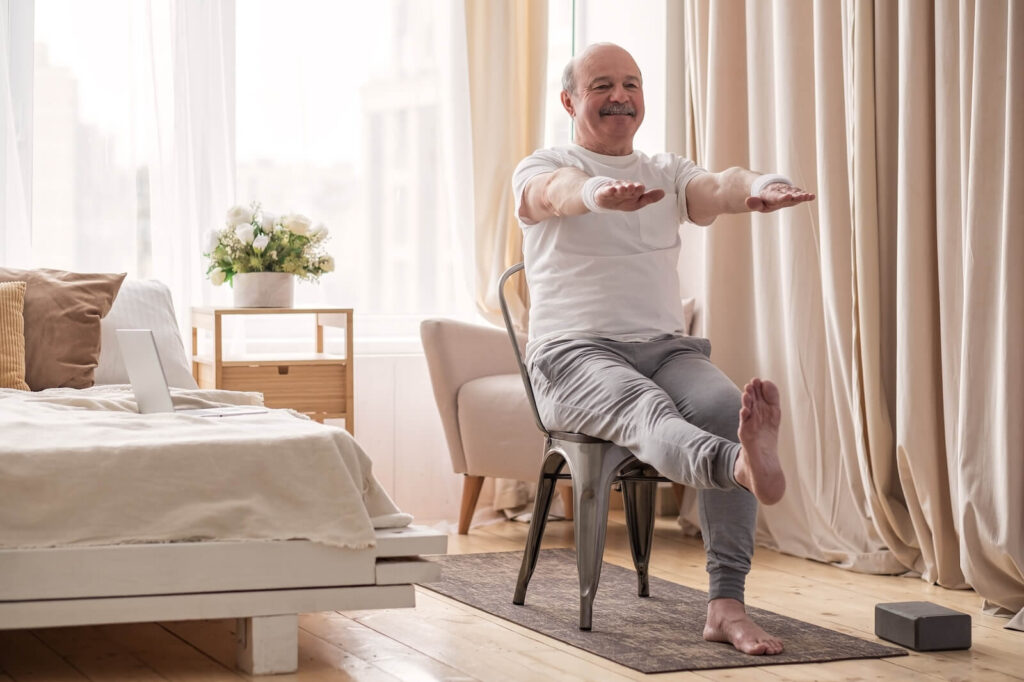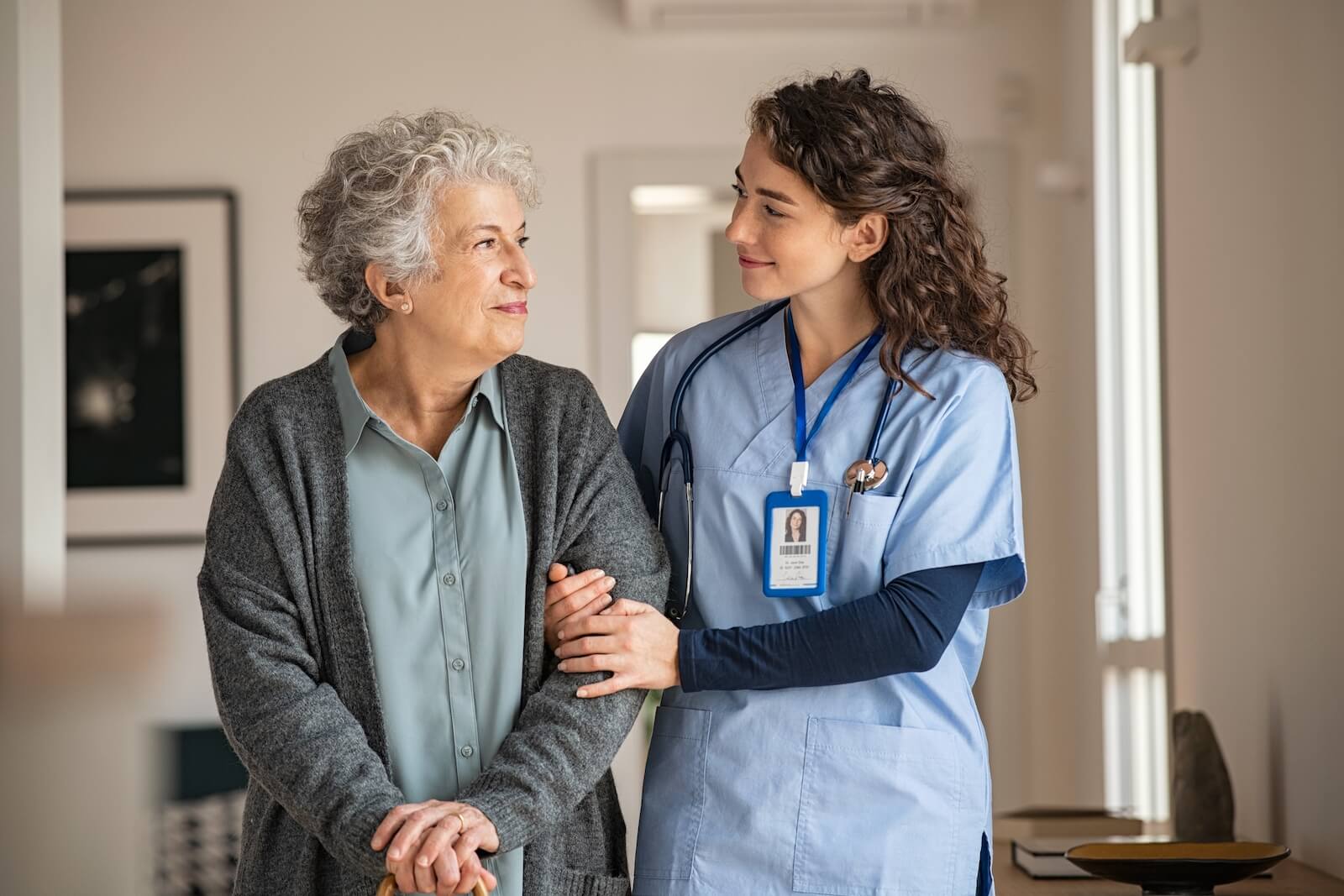The impact of falls on seniors isn’t just physical. It can easily affect your loved one’s ability to stay independent. Independence is a valuable thing, and it directly impacts a person’s quality of life. Small, thoughtful adjustments can significantly reduce the risk of falls and help your loved one safely manage their independence. So how can you help?
5 safety measures to prevent falls in seniors include:
- Keep living spaces clutter-free
- Install safety features in the home
- Encourage the use of mobility aids
- Promote regular exercise
- Schedule routine health checkups
If you’re ever unsure of where to begin, reach out to a team of senior care professionals near you.
Keep Living Spaces Clutter-Free
First, take a look at your loved one’s living environment. A clean and organized home is one of the most effective ways to reduce fall risks. Keep an eye out for everyday hazards, like:
- Loose rugs
- Furniture that juts out
- Items left in walkways
- Poor lighting throughout their home
- Simple clutter
Make it a daily habit to check commonly used areas for items that could obstruct pathways. Something as small as a cable left on the floor could be a hazard. Think about anything that could cause harm, and make adjustments as needed.
Don’t forget about their furniture placement—it plays a role in their safety. A chair or table in an unusual place can make home navigation difficult and increase the risk of tripping. Paying attention to these details can create a safer, more accessible living environment.
Install Safety Features in the Home
Simple modifications go a long way toward creating safer spaces for seniors. You can easily implement a few new safety features into your loved one’s home! These don’t require major renovations, but they can mean the difference between a fall and a safe living space.
Some key safety features to consider are:
- Grab bars in bathrooms, positioned near toilets and inside showers or tubs.
- Non-slip mats in bathrooms and other high-risk zones like kitchens.
- Sturdy railings along stairs for better support.
- Motion-sensitive lighting to illuminate dark areas automatically.
- Raised toilet seats for easier transitions.
These small changes provide added security and reduce instability in your loved one’s everyday life. They make things much more accessible and help your loved one stay safe.
Encourage the Use of Mobility Aids
Mobility aids are more than tools—they’re everyday companions in support and safety. They help maintain balance and reduce the strain of movement. This makes mobility much more accessible and restores independence to your loved one.
Some common choices include:
- Canes
- Rollators
- Walkers
However, you need to make sure any mobility aids are tailored to your loved one’s unique situation. A cane with the wrong height or a walker that feels uncomfortable can do more harm than good. It helps to visit a healthcare professional to make sure the intended tool provides the right kind of support.
Then, regularly check any mobility aids. Rubber grips or wheels wear down over time, and periodic checks keep them reliable and safe. These devices are simple, but they bring significant benefits!
Promote Regular Exercise
Staying active plays a critical role in staying independent. It strengthens muscles, enhances balance, improves overall health, and more. These are all key to reducing the risk of falls!

Seniors should exercise at least 150 minutes a week. Moderate-intensity activities, like walking or light resistance training, make all the difference. This can be broken down into several 30-minute sessions or any other way your loved one is comfortable with.
Meanwhile, it helps to include balance exercises. These are extremely helpful for seniors—the slow, intentional movements promote steadiness and everyday balance. Through regular exercise, your loved one can steadily train their muscles to stay upright.
Schedule Routine Health Checkups
Sometimes, an underlying medical condition causes balance issues in seniors. These conditions sometimes go unnoticed but still affect everyday quality of life.
Regular health checkups are key to catching conditions like:
- Inner ear problems
- Vision impairments
- Neurological conditions
- Joint or muscle issues
These appointments can even detect potential side effects from medication that could cause dizziness and imbalance. Regular health checkups are a simple way to learn what’s affecting your loved one—and how you can make adjustments to manage them effectively.
Let a Team of Professionals Help
Reducing fall risks isn’t just about avoiding accidents. It’s about paving the way toward improved independence and boosting quality of life—just like your loved one deserves. And here at All American Senior Living in Kingston, we’re here to help.In our community, safety is a priority. We’ve created an environment focused on care, connection, and supporting independence every day. Schedule a tour with us to see for yourself! Together, we can reduce the risk of falls, and help your loved one stay independent.





